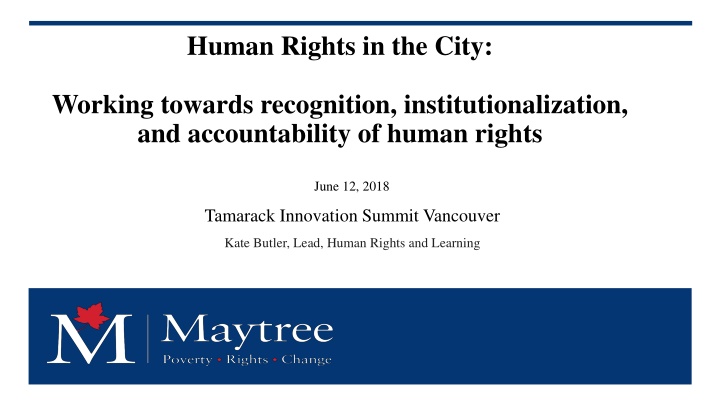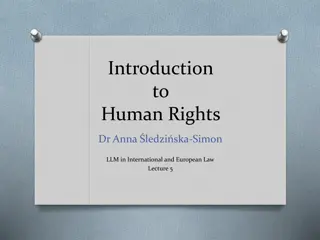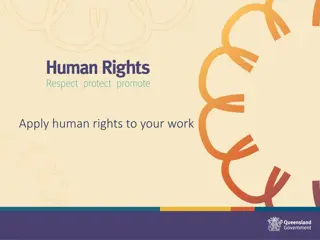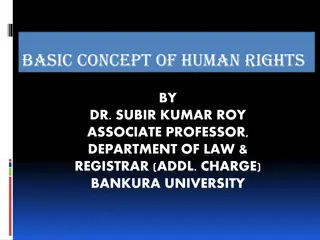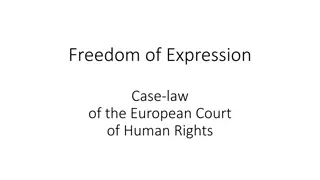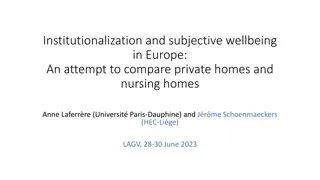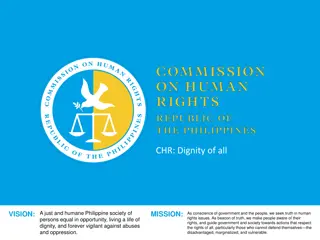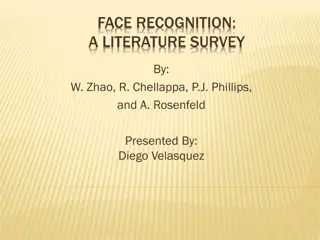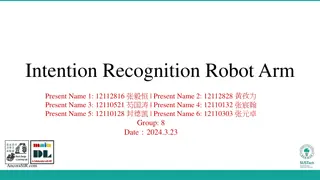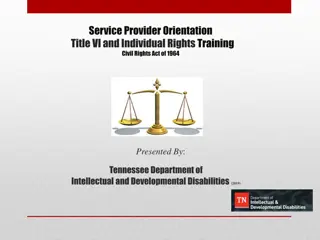Human Rights in the City: Working Towards Recognition and Institutionalization
This presentation covers the importance of social and economic rights, the current status of economic and social rights at international and provincial levels, and the proposed new RIA framework for legal recognition and accountability. It emphasizes the necessity of incorporating international human rights norms into domestic laws for effective implementation.
Download Presentation

Please find below an Image/Link to download the presentation.
The content on the website is provided AS IS for your information and personal use only. It may not be sold, licensed, or shared on other websites without obtaining consent from the author.If you encounter any issues during the download, it is possible that the publisher has removed the file from their server.
You are allowed to download the files provided on this website for personal or commercial use, subject to the condition that they are used lawfully. All files are the property of their respective owners.
The content on the website is provided AS IS for your information and personal use only. It may not be sold, licensed, or shared on other websites without obtaining consent from the author.
E N D
Presentation Transcript
Human Rights in the City: Working towards recognition, institutionalization, and accountability of human rights June 12, 2018 Tamarack Innovation Summit Vancouver Kate Butler, Lead, Human Rights and Learning
Introductions & Outline Intros & icebreaker Social and economic rights RIA framework Exercises Conclusions
What are social and economic rights? Overcoming poverty is not a gesture of charity. It is an act of justice. It is the protection of a fundamental human right, the right to dignity and a decent life. Nelson Mandela the right to an adequate standard of living, including housing the right to work the right to the highest attainable standards of physical and mental health the right to education the right to an adequate standard of living, including adequate food
Status of economic & social rights Some international successes (Optional Protocol on the International Covenant on Economic Social and Cultural Rights has been adopted) Federal: National Housing Strategy right to housing built in Best Interests of the Child in Family Law reform best interest of the child as a core component of the Convention on the Rights of the Child Federal, provincial, territorial meeting in December 2017 for ministers responsible for human rights (includes a commitment to econ & social rights)
Status of economic & social rights (contd) Provincial: Ontario: Private Members bill attempting to get social condition as part of the Ontario Human Rights Code introduced in fall 2017 B.C.: Legislation for the Poverty Reduction plan will be released this fall. There is some hope that social and economic rights will be mentioned However, courts still have mostly resisted recognizing social and economic rights
New RIA framework Legal recognition Institutionalization Accountability Proposed by Philip Alston, the UN Special Rapporteur on extreme poverty and human rights
Legal recognition States should ensure that their domestic law is consistent with their international legal obligations by incorporating norms of international human rights law into their domestic law
Examples Winnipeg is billing itself as the Human Rights Capital of Canada Montreal has engaged in a number of activities over the last year to frame itself as a human rights city (Rights City/Montr al, ville des droits humains)
Exercise #1 What would recognition of the human right on your table look like in your community? Think about how the right might be phrased, where it would be (city charter? Bylaws?), and why this would make a difference.
Establish institutions The assumptions underpinning rights are that institutions will be created and will help to develop the content of this right, promote its implementation, and facilitate its realization If these institutions are not created, it s unlikely that a particular right will be realized by people
Exercise #2 Look at the social and economic right at your table. What kinds of institutions might be created at the municipal or regional level that might let people realize this right? Think outside the box. What about a human rights court, run by an ombudsperson? Or a new power for an existing body?
Promote accountability Ensuring the governments are accountable to their citizens and other rights holders Appropriate means of redress, or remedies, must be available to any aggrieved individual or group, and appropriate means of ensuring governmental accountability must be put in place
Exercise #3 If the courts are not recognizing social and economic rights at this moment, what other kinds of accountability mechanisms might be in place for your social and economic right? Think about landlords, schools and/or school boards, workplaces, etc
Conclusions We can still work towards a greater inclusion of social and economic rights at various levels of government and by the courts In the meantime, however, the RIA framework (recognition, institutions & accountability) may help us build a culture of rights in our communities
